Iran's Defense Minister Says Ready For Automotive Manufacturing
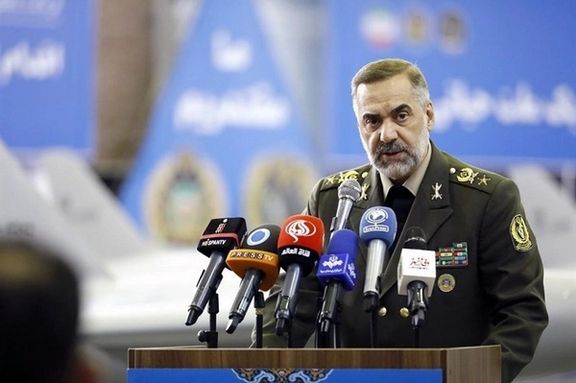
Iran’s Defense Minister Mohammadreza Ashtiani says the ministry is willing to enter the automobile manufacturing sector, should the president require it.

Iran’s Defense Minister Mohammadreza Ashtiani says the ministry is willing to enter the automobile manufacturing sector, should the president require it.
Ashtiani’s remarks come after President Ebrahim Raisi underlined the importance of automobiles during the Defense Capability Exhibition. In response, Ashtiani said that if called upon, the ministry is ready to engage in the automotive field.
During a TV program interview, Ashtiani elaborated on the country's defense advances and outlined the responsibilities of the Ministry of Defense. While primarily charged with equipping and arming the armed forces, he explained that the ministry also performs secondary missions. Ashtiani also praised the Navy of the Islamic Revolutionary Guard Corps for projecting “authority in encounters with foreign vessels” in the Persian Gulf.
Iran’s military might was further displayed on Tuesday when it unveiled a new drone, the Mohajer-10, with enhanced capabilities and increased flight duration
Official statements from Iranian media revealed that the homemade UAV (unmanned aerial vehicle), has an operational range of 2,000 km and can fly for up to 24 hours.
Reports indicate that the drone is equipped to carry missiles, bombs, and hand grenades. It is also outfitted with electronic warfare and reconnaissance systems.
Rising tensions in the region continue to draw global attention. Iran's attempt to seize two commercial vessels in early July was met with a resolute response from the United States, prompting Iran to withdraw, as confirmed by the Pentagon. Over the past two years, Tehran has reportedly harassed or seized more than 15 commercial ships in the broader Persian Gulf region.
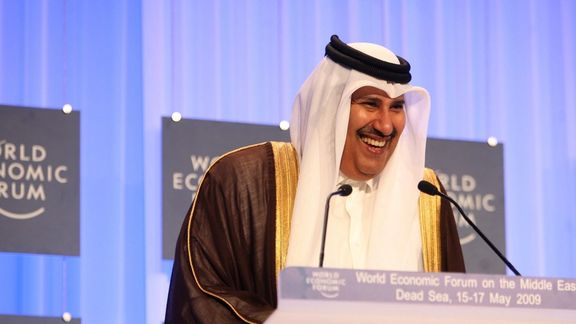
The prominent think tank Middle East Media Research Institute (MEMRI) in early August revealed that Qatar’s former prime minister made misleading remarks about Iran.
The ex-Qatari prime minister Hamad Bin Jassim, known by his initials HBJ, is currently the subject of a proposed investigation by a Beverly Hills councilmember. HBJ faces accusations of enabling terrorism and stoking antisemitism, according to MEMRI and a US congressional hearing.
HBJ plans to relocate to Los Angeles, where his luxury hotel The Maybourne Beverly Hills is located.
John Mirisch, the former mayor of Beverly Hills who now serves as a city councilmember, told Iran International, “Mr. bin Jassim’s statement is vile and yet another manifestation of the virus of Jew-hatred, something we in Beverly Hills, one of the few Jewish-majority cities outside Israel, have always condemned in the strongest of terms. I intend to ask the City Council to look into the MEMRI report, as well as Mr. bin Jassim’s remarks and to pass a resolution condemning any and all expressions of Jew-hatred, as well as any violations of human rights.”

The MEMRI report Mirisch referenced is titled “ A Terror Enabler In Beverly Hills And Bel Air – Part I, “ by the president of MEMRI, Yigal Carmon.
Mirisch also condemned HBJ’s reported antisemitic comment that was disclosed in a second MEMR report released on August 17 titled “Former Qatari Prime Minister Hamad Bin Jassim – 'The Thief Of Doha' – Recounts Personal Memories In Video Interviews.”
HBJ told the Kuwaiti news outlet Al-Qabas in January 2022, “Imagine oil [was sold] by some Jews…what would be the price of a barrel of oil? It would be the most expensive thing in the world. It would be more precious than anything, like medicine.”
With respect to Qatar-Iran relations, HBJ told Al-Qabas, "I am against turning Iran into our enemy. Iran did not attack the GCC countries” and that Iran “did not attack the GCC. It did not attack Qatar. This is a simple example. It did not attack or threaten us. So why would I be hostile to Iran? I have disagreements with Iran on many issues, that’s true, but this does not mean that Iran is an enemy of mine."
MEMRI countered HBJ’s false assertion, stating, “Iran has staged multiple attacks on GCC countries by means of the Ansar Allah (Houthi) militia in Yemen—a militia that is backed and armed by Iran and acts upon its instructions. The Houthis attacked the Aramco facilities in Saudi Arabia in 2019. They also targeted Saudi and Emirati oil, water, and electric facilities in March 2022, and attacked smaller targets in 2017 and 2018. “
MEMRI added “In August 2018, Gen. Naser Sha'bani, a top official of Iran's Islamic Revolutionary Guards Corps (IRGC), admitted that the Iranian regime had ordered the Houthi militia to attack two Saudi tankers, and that it had carried out those orders. “
Fox News reported in 2019 that Qatar had advance knowledge about Iran’s attacks on Saudi, Norwegian and UAE vessels but kept the information to itself.
Qatar harbored terrorists with links to the Islamic Republic of Iran during HBJ’s tenure as foreign minister and prime minister (1992-2013), according to a 2017 congressional hearing.
One telling example was when the US Treasury sanctioned 'Abd al-Malik 'Abd al-Salam (aka Umar al-Qatari), a Jordanian with Qatari residence in 2011 and 2012, for working “with associates in Turkey, Syria, Lebanon, Qatar, and Iran to raise and move funds, weapons, and facilitate travel for fighters.”
The 63-year-old former Qatari top official has an estimated fortune worth $1.2 billion, according to a 2023 Forbes article.
When asked about the antisemitism and terrorism promotion allegations against HBJ, Blake Fox, Director of Communications for the Maybourne Beverly Hills hotel, told Iran International “Kindly note that your email has been well received. We do not have any comment to provide.”
Qatar and Iran’s regime both prescribe the death sentence for gays. HBJ upheld the lethal homophobic system in Qatar during his premiership in the tiny oil-rich country.
Karmel Melamed, an LA-based Iranian-American and award-winning journalist, told Iran International, “It's indeed sad and shameful that the current Biden administration which has long claimed to champion LGBT rights, has failed to revoke the US visa of bin Jassim … [who] has long advocated for the LGBT to be executed.”
Melamed added, “As a Los Angeles resident I'm honestly surprised that the local city government and members of the entertainment industry living here who are very supportive of LGBT rights, have not demanded bin Jassim's deportation or protested outside his hotel in Beverly Hills.”
The US State Department told Iran International “Visa records are confidential under U.S. law; therefore, we cannot discuss the details of individual visa cases.”
When asked about the MEMRI report alleging HBJ enabled terrorism, the US spokesperson said, “We have no comment on the report at this time.”
Iran International sent numerous press requests to Qatar’s embassies in Washington DC and London. Requests for comment were also sent to Qatar’s foreign ministry, to HBJ and his charity in Doha.

The daughter of German-Iranian Jamshid Sharmahd, who is currently on death row in Iran, pleaded for the United States and Germany to intervene in his case.
Following a sit-in protest outside the US State Department, Gazelle Sharmahd, who lives in California, issued her urgent appeal to officials in Washington. "What I'm asking the US and Germany is to free my father, to bring my father back, to save his life," she said.
This appeal comes in the wake of a recent deal by President Joe Biden's administration, which secured the release of five American citizens incarcerated in Iran.
Sharmahd, 68, a software developer and long-term resident of California, was reportedly abducted during a visit to the United Arab Emirates in 2020 and subsequently transported to Iran against his will. The Iranian judiciary sentenced him to death on charges of "spreading corruption on Earth," a verdict that was upheld by Iran's Supreme Court in April. The family has vehemently rebuffed the allegations and Amnesty International has already condemned his trial as a sham.
Gazelle Sharmahd said she was frustrated by the passing of responsibility between Germany and the US. "It seems like a game of responsibility ping-pong. The issue is tossed back and forth, with each side claiming 'not my citizen,' 'not my jurisdiction.' And we're not getting through to them," she said
Germany has said it is actively involved in the case through its highest channels but Gazelle Sharmahd is convinced that Germany's efforts were only on improving her father's prison conditions.
While denouncing Iran's treatment of Sharmahd as "reprehensible," the US State Department said that that the case falls within Germany's purview as he is their citizen.
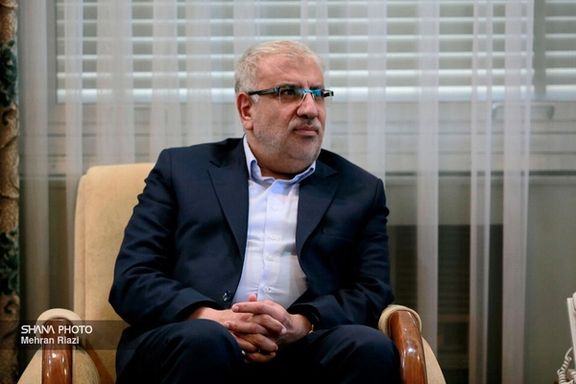
Iran's crude oil output will reach 3.4 million barrels per day (bpd) by the end of September, the country's oil minister was quoted as saying on Wednesday, despite US sanctions remaining in place.
"Our current crude oil production is 3.3 million barrels per day and by the end of September this amount will increase to 3.4 million," Javad Owji said.
The increase in crude production coincides with a steady rise in Iran’s exports. TankerTrackers.com that monitors global oil shipments, reported Monday that in the initial 20 days of August, Iran dispatched an average of over two million barrels of oil daily, marking a more than 30-percent surge compared to the past few months.
In 2018, then-US President Donald Trump exited the JCPOA nuclear agreement and re-imposed sanctions on Tehran, whose crude oil output dropped to 2.4 million barrels per day on average in 2021.
However, Iranian oil shipments began to pick up toward the end of 2020, as candidate Joe Biden announced in September of that year his intention to revive the 2015 JCPOA. During 18 months of talks with Iran in 2021 and 2022, Tehran steadily increased its oil shipments and uranium enrichment.
The latest boost in production and exports also coincides with an agreement announced in mid-August that the United States allowed the release of $6 billion of Iran’s money frozen in South Korean banks in exchange for five American hostages. Some believe that a larger secret deal exists with Tehran over its nuclear program and the Biden administration is not enforcing sanctions.
Earlier this month, Iran announced its oil exports had surpassed 1.4 million barrels per day, primarily driven by sales to China.
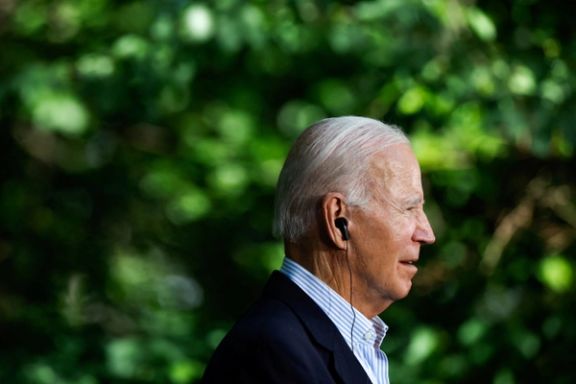
President Joe Biden is facing increasing backlash as Congress demands answers as to how the latest nuclear talks with Iran short-cut strict US laws.
House Majority Leader Steve Scalise, GOP Conference Chair Elise Stefanik and House Foreign Affairs Committee Chairman Michael McCaul have written to Biden accusing him of breaking a 2015 law by negotiating a secret nuclear “understanding” with Iran and hiding it from Congress.
Any negotiations and agreements with Iran must go through the Iran Nuclear Agreement Review Act, which clearly states that within five days after reaching any agreement with Iran regarding Iran's nuclear program, the President must relay to Congress several issues for approval.
These include “the text of the agreement and all related materials and annexes; a related verification assessment report of the Secretary of State; a certification that the agreement includes the appropriate terms, conditions, and duration of the agreement's requirements concerning Iran's nuclear activities, and provisions describing any sanctions to be waived, suspended, or otherwise reduced by the United States and any other nation or entity, including the United Nations”.
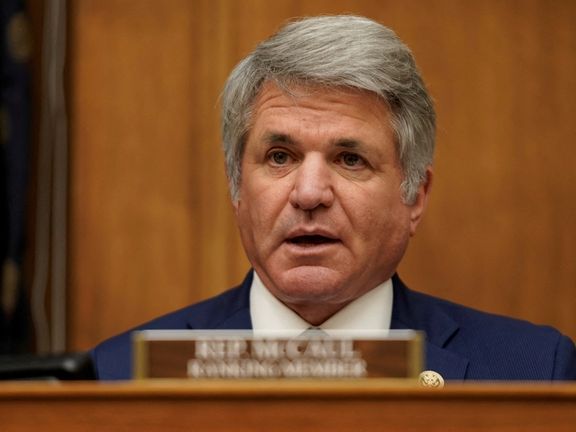
The three Republicans wrote to Biden of their “significant concern” that the administration is pursuing a nuclear understanding with Iran alongside a hostage release deal. Earlier this month, five dual US-Iranian citizens held in Iran were released in return for the unfreezing of $6bn of Iranian funds in South Korea, a move which experts said only compound Iran’s policy of hostage taking for gaining leverage against the West.
The letter, dated August 21, stated “any such deal or understanding with Iran that does not permanently and completely halt Iran’s nuclear enrichment raises concerns that your Administration is entrenching an Iranian nuclear program that threatens US national security”, detailing the rapidly increasing levels of uranium enrichment revealed this year.
“Reducing the rate at which Iran is stockpiling 60% enriched uranium does not significantly change this threat, particularly as Iran continues to install advanced centrifuges,” the trio said, reiterating Iran’s cessation to comply with the JCPOA nuclear agreement and its continued refusal to fully cooperate with an ongoing International Atomic Energy Agency (IAEA) investigation.
Referring to last week’s deal, the group stressed that the hostage-taking policy of the regime, which has been going on for years, is the Iranian Republic’s “negotiating tactic and funding mechanism”, all of which puts US security and the security of its citizens at greater risk.
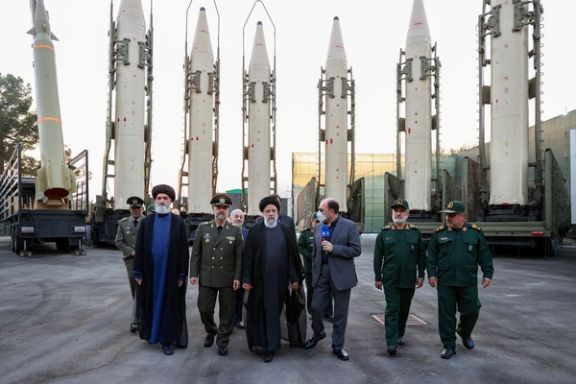
Just last week, Richard Goldberg, a senior adviser at the Foundation for Defense of Democracies and former White House National Security Council director for countering Iranian weapons of mass destruction, raised the matter of Biden’s skirting the legal obligations. “Emergency hearings cannot be held. Resolutions of disapproval cannot be fast-tracked. President Biden has successfully evaded the Iran Nuclear Agreement Review Act, which requires him to notify Congress of any agreement with Iran related to its nuclear program before lifting sanctions,” he said.
The Republicans warned Biden that if “the Administration continue to ignore US law and flout congressional oversight, we will use all the tools at our disposal to bring transparency and accountability to the American people and return to a policy of maximum pressure that reverses Iran’s nuclear advancements and deters its targeting of American citizens and service members, support for terrorism and other malign activities”.
The controversy continues alongside allegations that the reasons for the suspension of Iran envoy Robert Malley have been hidden from Congress for several months. While the news of his suspension over what was called suspected security breaches was announced in June, it is believed that it had happened as early as April, which was revealed by an Iranian government newspaper.
In spite of multiple investigations going on side by side, including the Federal Bureau of Investigation, Malley suspected of mishandling confidential security documents, he has landed faculty positions at Yale’s Jackson School and Princeton’s School of Public and International Affairs.
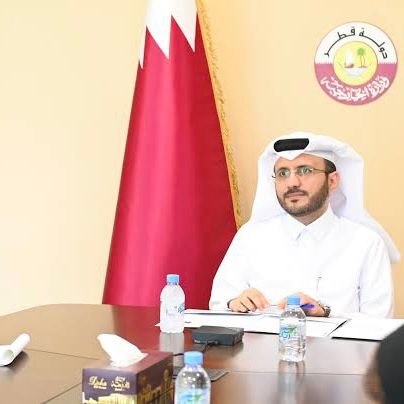
Qatar's Foreign Ministry spokesperson confirms that the nation has successfully mediated a US-Iran prisoner exchange
During a weekly media briefing, Majed bin Mohammed al-Ansari underlined Qatar’s important role in achieving consensus between the two sides and facilitating communication with various stakeholders for the implementation of the agreement. This includes the release of prisoners and the $6 billion Iranian funds held in South Korea would be unfrozen and sent to an account in Qatar that Iran could access.
However, Al-Ansari did not reveal specific details regarding the exchange location of the prisoner exchange or the transfer of frozen funds to Qatari banks. He said, "Such details will be announced in due course,” he said.
This development follows a two-year mediation effort by Qatar and Oman, which paved the way for the US and Iran to reach an agreement earlier this month.
The deal entails the release of five American prisoners detained in Tehran in exchange for the liberation of five Iranian prisoners held in the United States as well as the release of $6 billion of frozen Iranian assets.
On Tuesday, US National Security Advisor Jake Sullivan, said he was confident in the smooth process of the agreement and that the eventual release of the five American citizens was on track. However, he refrained from providing a specific timeline.
As a first step in this deal, Iran on August 10 released four imprisoned US citizens from Evin prison into house arrest, where they joined a fifth already under home confinement. These include businessman Siamak Namazi, 51, Emad Sharqi, 58, and environmental activist Morad Tahbaz, 67, who holds British nationality in addition to Iranian citizenship. The identities of the fourth and fifth Americans who either left prison or were under house arrest have not been disclosed.
Notably, Iranian Foreign Ministry spokesperson Nasser Kanaani, on Monday, articulated that a two-month timeline has been established for the implementation of the agreement with the United States.






